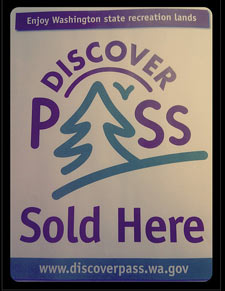 While supporters of parks nationwide watch in disbelief as California, beset by huge budget deficits, makes plans to close up to 70 of its 278 state parks by the end of June, its neighbor to the north, Washington State, may be next in line. The Evergreen State is similarly facing a structural budget crisis, the result of large, long-term deficits coupled with a generally flat economy. As a result, state parks along with all other state services that are funded by general tax funds, are suffering.
While supporters of parks nationwide watch in disbelief as California, beset by huge budget deficits, makes plans to close up to 70 of its 278 state parks by the end of June, its neighbor to the north, Washington State, may be next in line. The Evergreen State is similarly facing a structural budget crisis, the result of large, long-term deficits coupled with a generally flat economy. As a result, state parks along with all other state services that are funded by general tax funds, are suffering.
As of Jan 1, Washington had issued new notices to 160 state park employees informing them of the possible termination of their positions or reduction to part-time status (with loss of benefits). This personnel action would be following several previous rounds of budget cutting by Governor Chris Gregoire and the legislature. Since the high water mark of $97 million allocated for state parks in the FY 2005-07 biennial budget, the general fund budget for parks has been cut to $17 million, and even that amount is uncertain in the next budget cycle.
Slashing $70 million in the FY 11-13 budget from $87 million to $17 million, the Governor with legislative approval, directed the state parks department to make up the difference with the proceeds of a statewide parking and entrance pass to state parks called the Discover Pass. However, for numerous reasons, receipts from the sale of the Discover Pass have not lived up to projections, and as the state enters the slowest months of visitation, the Department of Parks and Recreation is taking additional steps to deal with potentially even deeper cuts should some funding not be restored.
The origins of Washington’s predicament resemble those in other states which have primarily funded state park operations from general funds. The recession of 2008 provided the tipping point, and now a number of state park systems face the abyss, most notably California and Arizona. Washington State is earnestly trying not to follow in their path.
“It is certainly a serious situation, “says Rodger Schmidt, a member of the Washington State Park and Recreation Commission. Schmidt describes the steps the governor and legislature took in the past three years to deal with the recession, including creation of a donation fund, gradual cutbacks in services and maintenance, and the eventual adoption of the Discover Pass. But, he acknowledges, this latest round of cuts “was especially tough.”
Washington approached its state park funding crisis differently than California by standing firm in its intention not to close any parks. California had also proposed a state park pass for vehicles in 2010, but its legislation would have required drivers renewing tags to either pay the state park fee or opt out of the program. Washington, on the other hand, followed the lead of states such as Michigan by making its $30 annual Discover Pass voluntary. Although visitors can still pay a daily entrance fee of $10 per vehicle, all are encouraged to purchase the annual Discover Pass which allows unlimited visitation and parking.
Elected Washington officials concur that it’s in the best interests of the state to keep its parks open. Despite layoffs and reduction of many full-time ranger positions to part-time status, the state continues to believe park closures only devalue the quality of the product promoted through the Discover Pass. “In fact, we think it’s counter-productive to close parks,” says Eileen Frisch, acting state park deputy director. “Not only would it be a disincentive for people who we want to purchase the Discover Pass, but we will lose revenue from those parks we do close.” She says they intend to move to a more seasonal operation of most of the state parks, and make other organizational changes to cope with the loss of funding.
Sales of the Discover Pass may not have not reached full potential because the public has resisted the notion of buying a pass for every vehicle they own. That’s something the state will look to correct in the coming year, Schmidt says, adding: “We acknowledge that we did not do a great job marketing the Discover Pass, but we had very little time to do so after the legislature approved the new program last year.” He believes the state will do a much better marketing campaign in the coming year.
In addition to new strategies for the Discover Pass, the Washington State Park and Recreation Foundation is looking at creation of an Operations Donation Fund to encourage corporate and business support as well as a Virtual Ranger educational and interpretive program that could involve sponsorships and other sources of new revenue such as public/private partnerships. “The future is not in public funding,” says Schmidt. “We recognize that.”
Richard J. Dolesh is NRPA Vice President of Parks and Conservation

